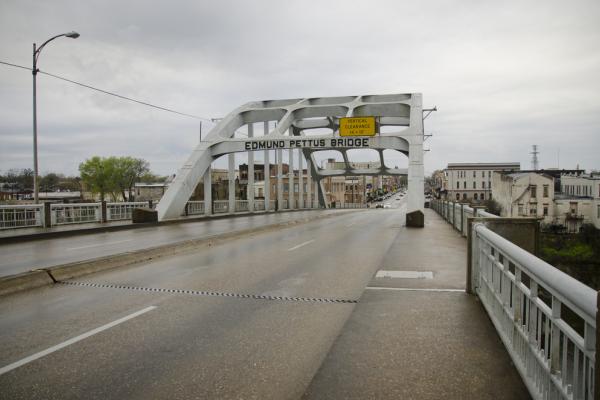The journey to end systems of injustice begins with a single step. This theme resonates throughout the recently released film Selma, which recounts the events leading up to the famous Selma-to-Montgomery march. Led by Dr. Martin Luther King Jr., this march catalyzed the full enfranchisement of people of color through the Voting Rights Act of 1965.
The Voting Rights Act is considered to be one of the most successful achievements of the civil rights movement. But 50 years later, the residue of Jim Crow laws that banned people of color from voting lingers today in a new, subtle form: disenfranchisement laws for people with felony convictions.
Michelle Alexander’s book, The New Jim Crow, examines how these laws strip minority communities of their voice in the public sphere because of the disproportionately high percentage of racial minorities “swept into” America’s mass incarceration system.
“An extraordinary percentage of black men in the United States are legally barred from voting today, just as they have been throughout most of American history,” Alexander writes.
Christ’s church needs to busy itself in this unfinished business of Selma. Returning citizens already face incredible hurdles to find housing and employment once released from prison. Denying voting rights to 5.85 million people with felony convictions further emphasizes that society has little care for rehabilitating the formerly incarcerated. Such a sentiment certainly grates against the actions of Christ who healed and exalted society’s “least of these,” not to mention the words of the biblical prophets who exhorted Israel to “administer true justice; show mercy and compassion to one another” (Zech. 7:9).
The right to vote can help transform people by offering and affirming their dignity and place in our society. That’s why voting rights restoration is a key piece of my work at Crossroad Bible Institute, where we strive to equip returning citizens for successful re-entry. We’ve partnered with the Brennan Center for Justice and others to restore voting rights to people who have lost them because of criminal convictions in their past. Some states, like Florida, Kentucky, and Iowa are especially in need of reform. Selma honors the great sacrifices people such as Dr. King undertook to secure voting rights for people of color.
But the film should also remind viewers that the march toward equality for all citizens did not end at Selma — there is still much road to be covered. As today’s leaders and organizations take steps to overturn disenfranchisement laws and other systems of inequality, the church must be marching alongside them, every step of the way.
Dr. H. David Schuringa is the president of Crossroad Bible Institute, an international education and advocacy agency for people in prison, returning citizens and their families.
Image: Edmund Pettus Bridge in Selma, Ala., site of Bloody Sunday. Terry W Ryder / Shutterstock.com
Got something to say about what you're reading? We value your feedback!
